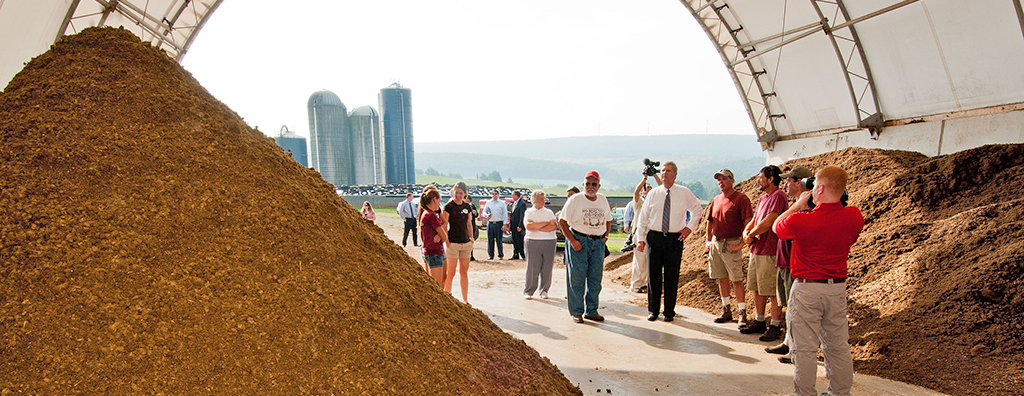
The Co-benefits of Livestock Digester Projects
Kasey Krifka, The Climate Trust
October 20, 2017
The Climate Trust is asked periodically about the co-benefits of the sectors where we work and invest—forestry, grassland conservation, and livestock digesters. Livestock digesters, in particular, have the unique potential to rapidly scale-up climate solutions, in addition to there being a growing demand for livestock digester carbon offsets in compliance and voluntary carbon markets.
The conversion of methane gas to electricity reduces greenhouse gas emissions, provides a sustainable source of renewable energy to replace fossil fuels, and achieves financial revenues from the sale of both electricity and carbon offsets. The sale of offsets helps businesses, organizations and individuals reach carbon reduction goals and helps the farmer earn additional financial revenue.
Digester projects offer a host of beneficial revenue streams, from improving the economic and environmental performance of dairies, to clean energy, organic fertilizer, improved soil nutrient management, water quality protection, diverting waste from landfills, reduced animal and food waste, and avoided energy use.
Dairy digestion boasts benefits other, more conventional, renewable energy technologies, such as wind and solar power, cannot claim. For one, it addresses emission of methane, a greenhouse gas 84 times more potent than carbon dioxide over a 20-year period. The Climate Trust estimates that dairy digesters have about five times the greenhouse gas benefit of other similarly sized renewable energy projects, because they avoid these powerful methane emissions. Moreover, energy production from dairy digesters is uninterrupted and reliable year-round because it is not dependent on weather conditions. Digesters can be used like a battery, combusting the gas to generate electricity only during peak times. We don’t have power over when the sun shines or the wind blows—so balancing the grid is essential and biogas lets us do it with more renewables.
The sustainable use of waste products from the digester results in significant savings for the farm itself, as well as providing benefits to the local community. The elimination of open manure lagoons result in reduced odors, less exposure to vector-borne diseases, improvements to local air quality and increased hygienic standards on the farm.
The remaining solids from the digester are sterilized through the heating process, and can be used as bacteria-free natural animal bedding, or spread in the fields as a cleaner fertilizer. This clean bedding leads to cleaner cows, fewer sick animals and reduced use of medication. Not to mention the costs savings from a reduced need to purchase animal bedding. If a dairy chooses not to use the fibrous solids as animal bedding, then pyrolysis—the application of heat in the absence of oxygen—can produce biochar. This renewable coal-like substance not only acts as a fertilizer in soil, but is also a great carbon sink as the carbon rich substance doesn’t break down for hundreds of years.
Finally, technologies like digesters can save consumers money on fuels and give them a broader array of fuel choices at the pump.
Image credit: Flickr/U.S. Department of Agriculture